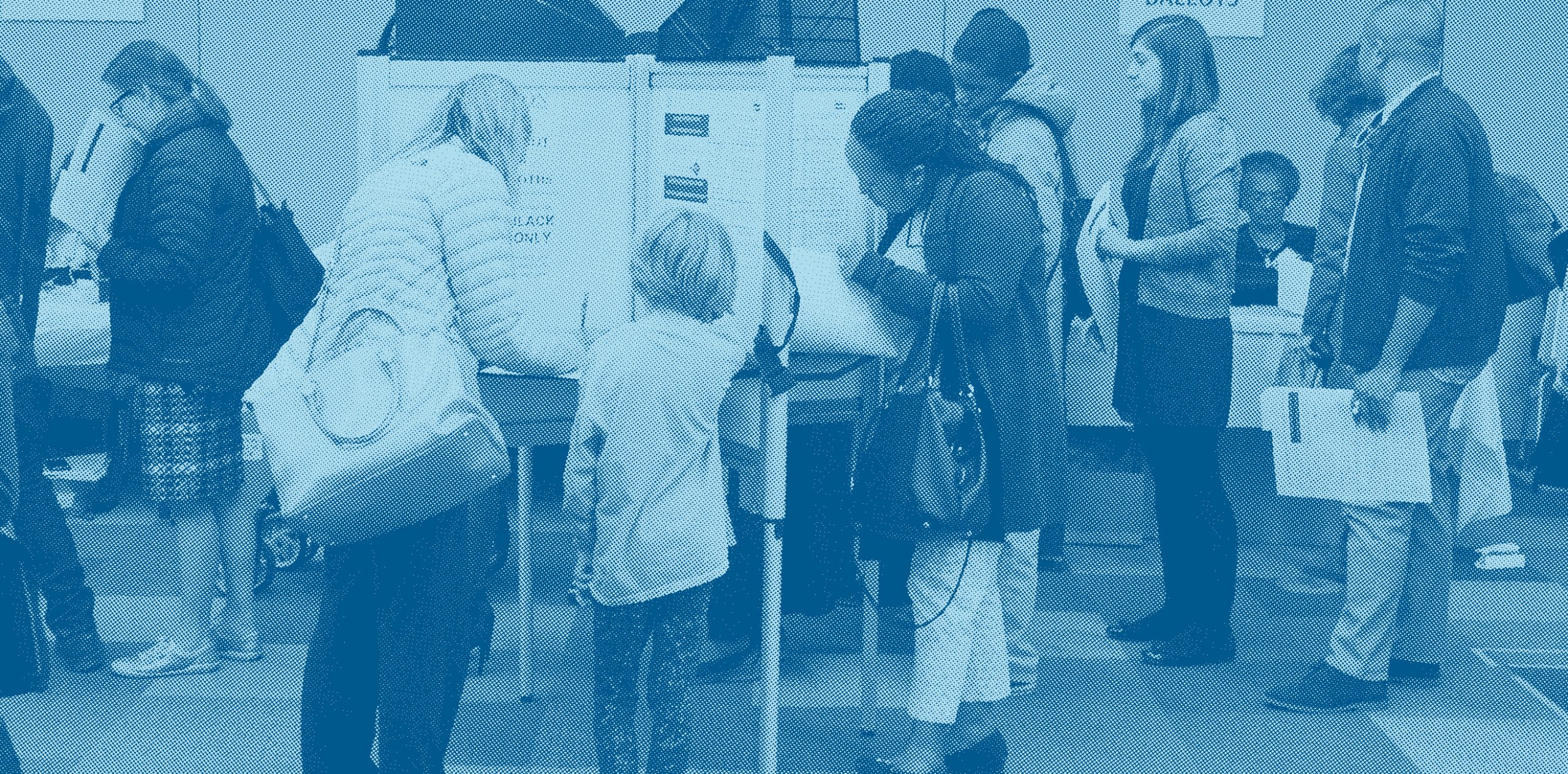This report provides insights into the state of public opinion about election administration and reform. The findings are primarily drawn from the 2008–2016 Cooperative Congressional Election Study (CCES), a survey conducted each federal election year since 2006. i We hope that the findings contained in this report, and suggestions for future research, will help election officials, lawmakers, advocates, and others understand attitudes of the American people toward one of their most-cherished rights.
The takeaways in this report include:
Deciding to Vote
- A significant number of nonvoters choose not to participate because they do not like the candidates, and some may be generally unenthusiastic about participating.
- Lack of information may keep people from voting in certain contests, especially down-ballot races.
Navigating Voter Registration
- Many people know that they are responsible for registering and updating registration. Most know where to register and that a move requires them to update their information. Most people are likely to rely on internet searches for registration information.
- Many people could benefit from ongoing education about how the voter registration process works in their states, especially states that have recently implemented modernization reforms.
- The majority of people support online voter registration but might not know whether it is available in their state. Some continue to prefer to use the paper registration form. The public does not currently express strong support or opposition to automatic voter registration.
The Voter Experience
- There is not one most-preferred method of voting. Many like the convenience of early in-person and absentee or vote-by-mail voting. Absentee or vote-by-mail voters are more likely than early in-person voters to say that they distrust certain aspects of the voting process. Not surprisingly, voters provide compelling reasons to continue to vote in the way they have done before.
- People express a higher tolerance for waiting in line when they are told that the wait is 15 minutes. Tolerance decreases as the anticipated wait time increases. i More about the CCES is offered in the Survey Methodology section of this report and on the project’s website at: https://cces.gov.harvard.edu.
- Significant numbers of people are confused or unfamiliar with their state voter identification requirements. Many appear to learn about these requirements during election cycles, suggesting the need for ongoing education.
- Overwhelming majorities of people provide good or excellent job performance ratings for their poll workers. Most people like that poll workers are polite and knowledgeable and demonstrate other signs of excellent customer service.
Trust and Confidence Measures
- Election administrators enjoy higher levels of public trust when compared to officials in other public institutions. State and local election officials should continue to enjoy high public approval if they are viewed as nonpartisan experts.
- Levels of voter confidence are influenced by the voter’s polling place experience, partisanship, and support for the winner (sometimes referred to as the “winner’s effect”). Most are confident that their own votes and votes across the country are counted as intended, though there is a noticeable gap between individual and national level confidence. There was a dramatic up-tick in voter confidence levels among Republicans and Trump supporters in 2016.
- Perceptions of voter fraud, electoral integrity, and electoral fairness are deeply intertwined and powerful indicators of a healthy democracy. Most people believe that our elections are run with integrity and that outcomes are fair, but perceptions about the prevalence of voter fraud raise concerns.
We hope that readers find this informative report as interesting as we do. Thank you for reading!
